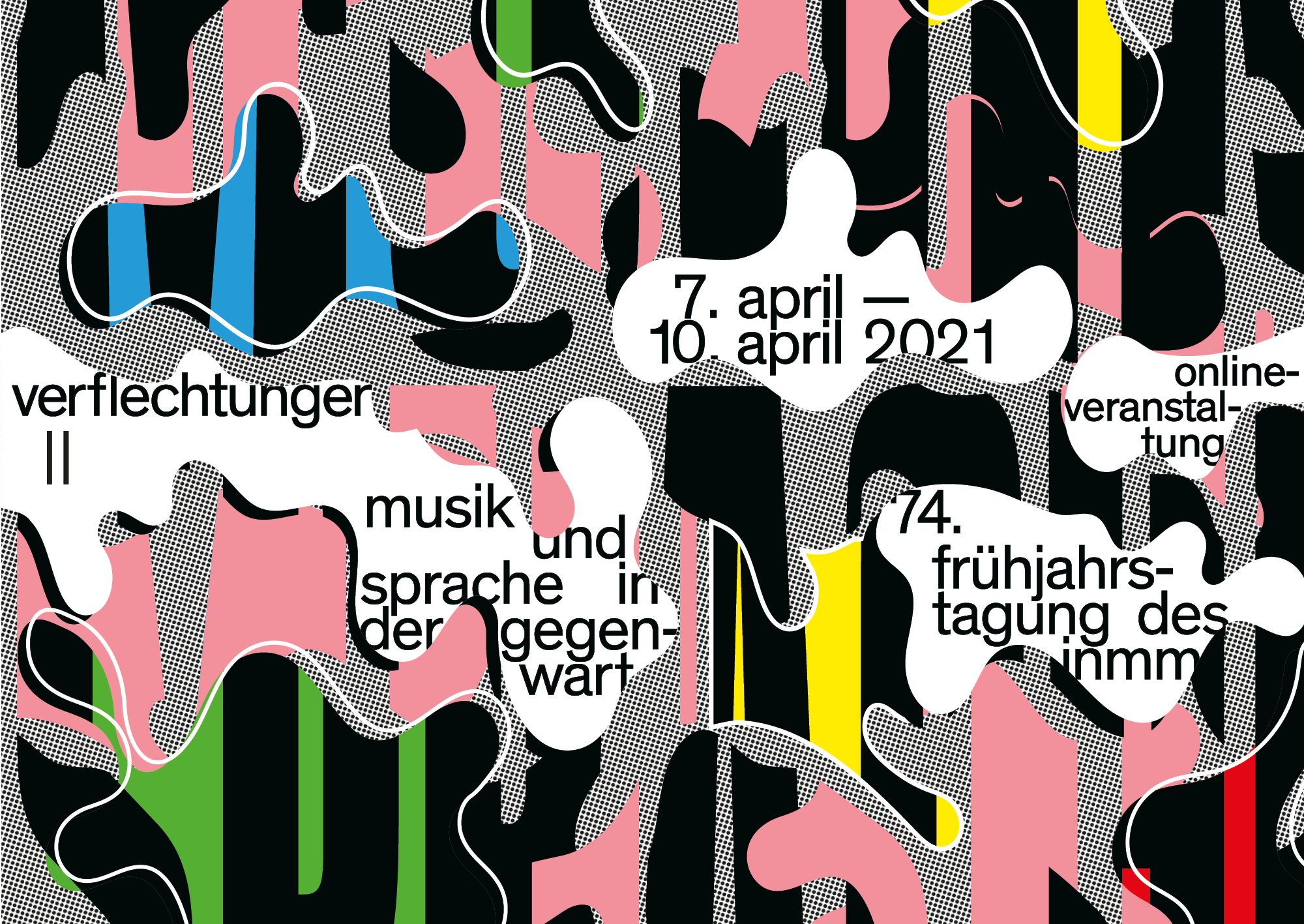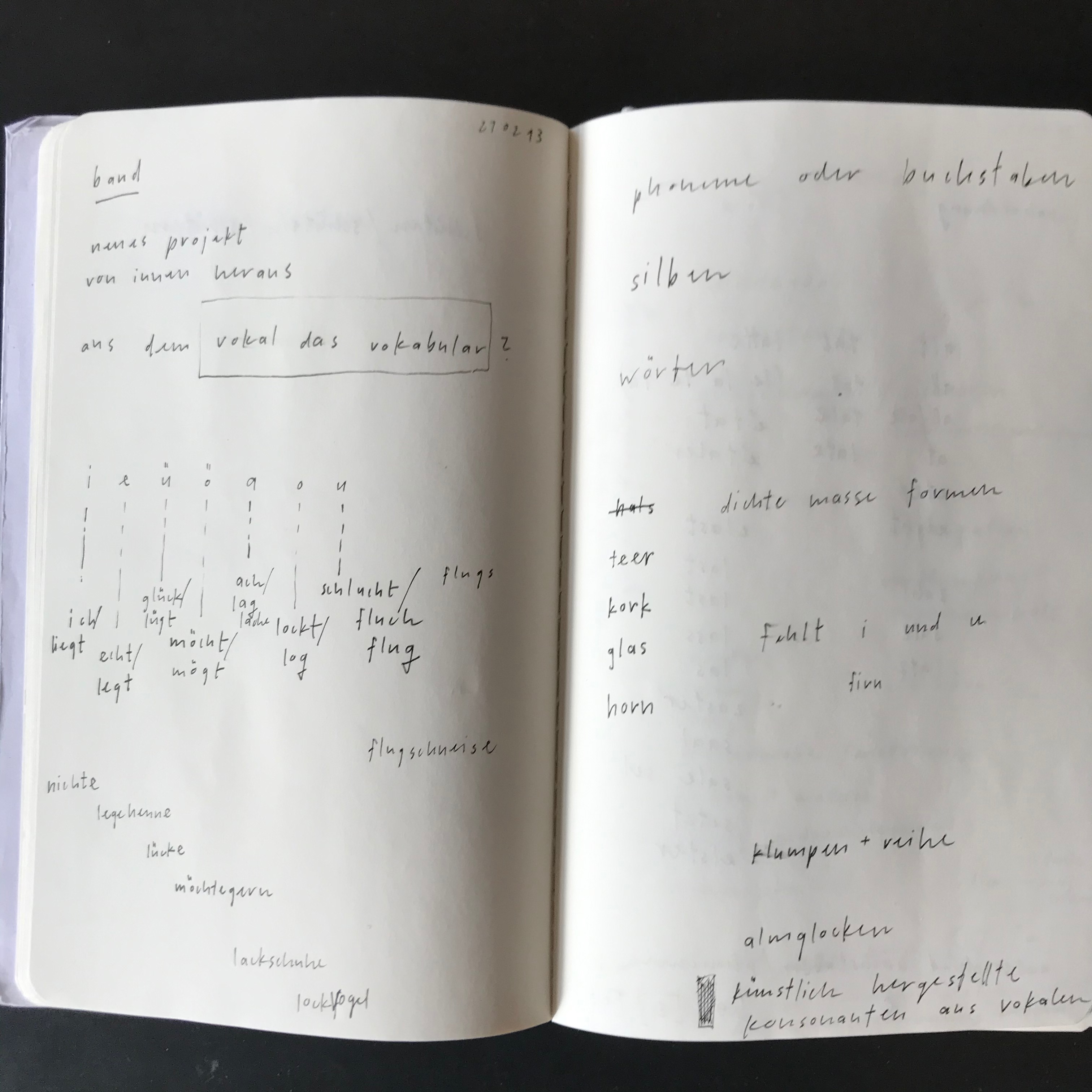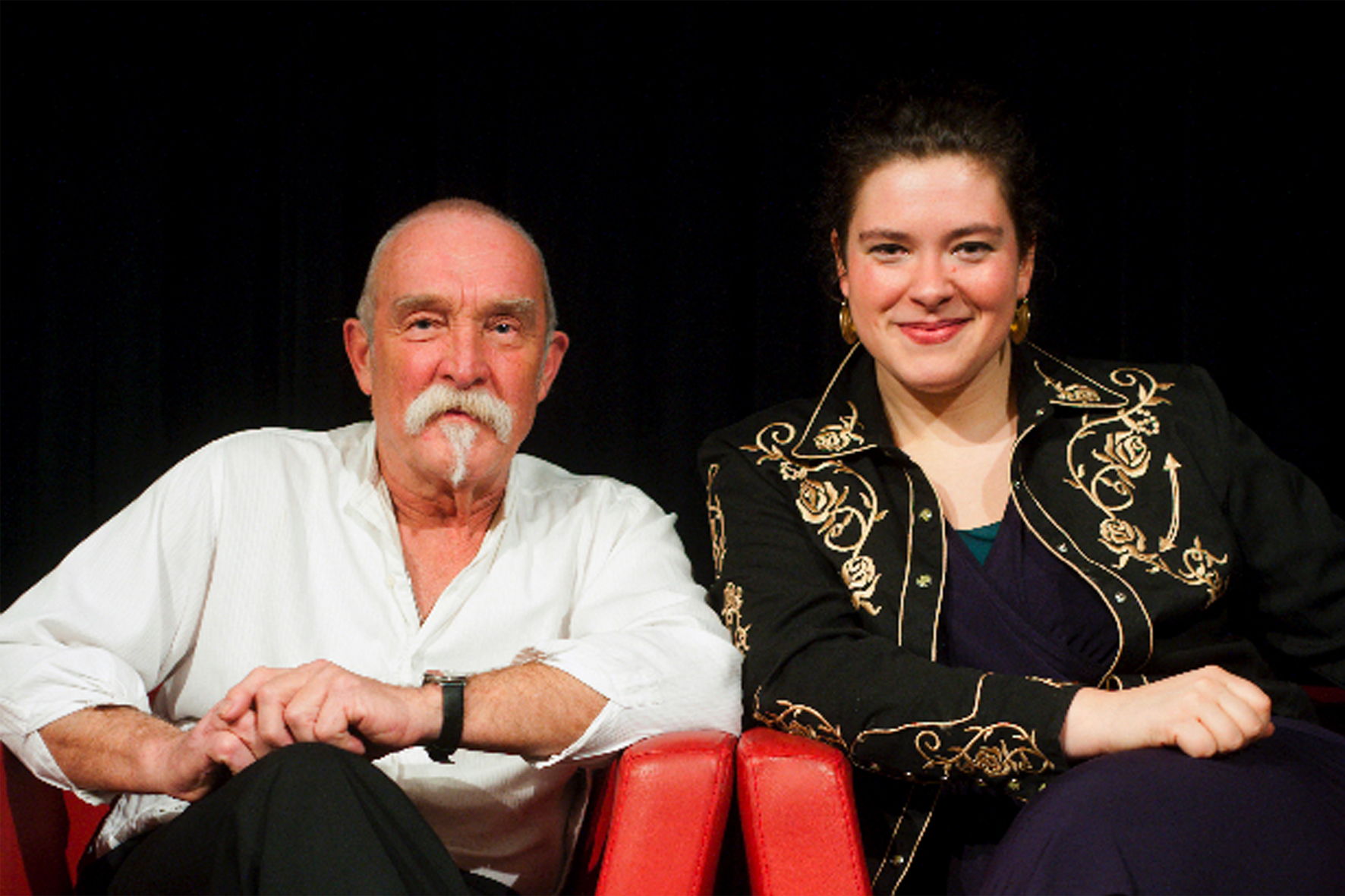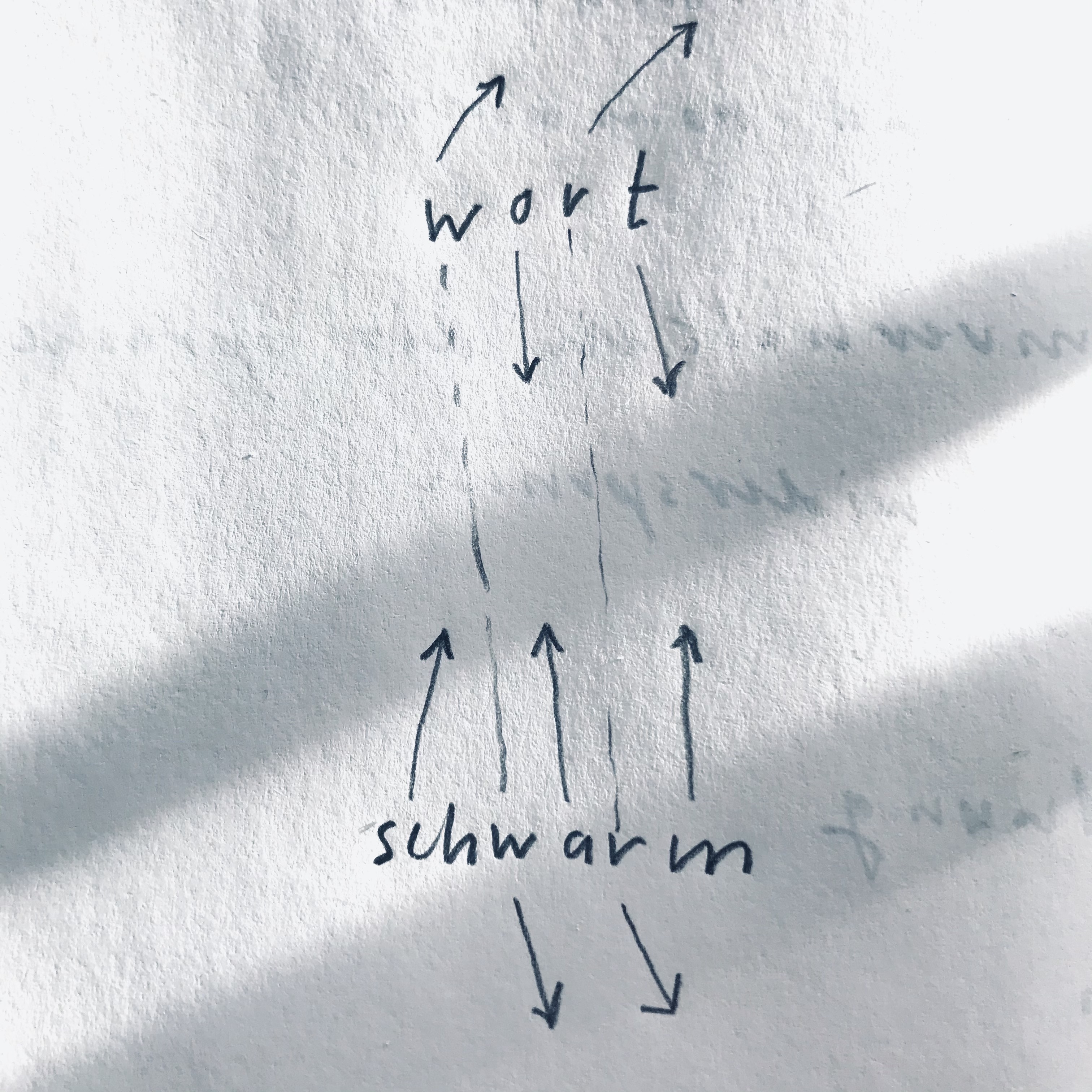Music and language are in many ways intertwined. This year’s Spring Conference in Darmstadt will explore this broad spectrum with lectures, panels and of course concerts, with performances by slam poet Nora Gomringer, soprano Sarah Maria Sun and ensemble proton bern.
Online streaming between April 7 and 10, 2021

Thomas Meyer
Darmstadt, the venerable city in Hesse steeped in tradition and considered to be the “centre of Art Nouveau”, is also of crucial importance for 20th century music. It is not only home to a Jazz Institute with the best-stocked archive in Europe, every two years during the summer, the famous Darmstadt Summer Courses for New Music take place there and renowned teachers meet, lecture and discuss with the next generation. Since its foundation in 1946, Darmstadt – together with Donaueschingen – is one of the most important places of discussion where aesthetic directions are set – and the city gave its name to the avant-garde school led by Pierre Boulez and Karlheinz Stockhausen.
Somewhat less well known a spring conference was also launched at that time, also dealing with new music, artistic production and musicology, but above all with its transmission, especially in music education.
The conference is organised by the ‘‘Institut für Neue Musik und Musikerziehung (Institute for New Music and Music Education)‘ (INMM). The association also offers composition courses for children and young people as part of the spring conferences and launched a research project called ‘Campus Neue Musik‘, which is supporting cooperative composition projects with school classes.
INMM Trailer concert with Sarah Maria Sun, 9.4.21 ©INMM 2021
The conference has always been prepared and carried out by a collective board of artists, educators and academics, embodying the very idea of cooperation in its structure. As the INMM states on its homepage, it can be described as “forum of interdisciplinary dialogue between production, reproduction and reflection on innovative artistic concepts of the present and recent past and their transmission in music education.“.
Brand-new topics as well as border areas
Brand-new topics and border areas have always been up for discussion, in recent years for example on physicality, film/video or the clash of cultures. “We want to see how different things come together,” says musicologist Till Knipper, of the collective board. This year, the diverse interweavings of word and language with music are up for debate – an ancient, actually almost fundamental topic, but one that still holds a lot of potential and opening new areas in contemporary music, which will be the theme of this year’s conference.

The pandemic does not allow for live performances, so for the first time, everything will be done via the internet, according to a clever schedule in which one is not overfed with material. On the one hand, pre-produced contributions can be watched online, offering an artistic statement, on topics that will be the subject of lectures from 4 p.m. onwards and roundtable discussions from 6 p.m. onwards. The evening is reserved for performances and concerts.
The combination of music and language offers a wide spectrum. Of course, more traditional ways of making and composing music will also occur, they are even the focus on the second day, but it might turn out not being so conventional after all, for example when slam poet Nora Gomringer interacts with Günter Baby Sommer, a drummer who has also performed with Günter Grass.

On the first day, the interconnections are incorporated into the theatrical, while on the third day, the voice itself speaks (and sounds), precisely that very medium of conveyance that is as individual as it is resilient. The Voice belonging to the outstanding soprano Sarah Maria Sun for the occasion.
She’ll be performing or singing new songs by Rolf Riehm and Thierry Tidrow, who adds a sublayer of emoticons to his Morgenstern settings.
Rolf Riehm, excerpt from song cycle after Heine / Hölderin, Der Asra, Orpheus Euphrat Panzer, Hyperions Schicksalslied, Sarah Maria Sun, Jan Philip Schulze, UA INMM 2021
For Saturday, a swiss focused finale with “Transformationen“, a concert by ensemble proton bern, with no text, or at least not a conventional one, rather language is transformed into music, which is not a coincidence, as Switzerland has some special word-sound artists: Composers who transfer and transform language into mere sounds and achieve astonishing results.
There are many mentors in the oldest generation, such as Heinz Holliger, Urs Peter Schneider or Roland Moser. It can even happen – as with Moser – that only a text’s punctuation is set into music.
The younger generation followed them, developed further, brought in something new. Composer Annette Schmucki, for example, likes to start from word lists, analyse and penetrate them and let her music emerge from them on many different levels. Sometimes the text is simply spoken, sometimes language appears as musical notation, sometimes it shapes the structure of the music. “brotkunst… /54 pieces/farbstifte papier tabak“, for example, is based on texts by Adolf Wölfli. Wait and see what her new composition “drei möbelstücke” is about?
Annette Schmucki, brotkunst / 54 stück / farbstifte papier tabak, world creation ensemble proton bern 2016
Daniel Ott, founder of the Rümlingen Festival, who directs Munich’s Biennale für Neues Musiktheater with his colleague Manos Tsangaris, has always been politically motivated as well. One of his first compositions, “molto semplicemente” for accordion solo was born against the background of the Basel chemical fire in 1986 and brought it up. The starting point of his “6/7 Gare du Sud”, is the unacceptable situations that migrants are confronted with at Chiasso’s train station, so everyday issues flow into the music. These are unusual transpositions, bringing new aspects of the linguistic material to light.
The 2013 work “and then?”, for contrabforte (a newly developed type of contrabassoon) and ensemble, by Isabel Klaus will also be performed. It shows this composer’s love of the quirky, the somewhat outlandish, insistent and quietly playful cabaret.
It is no longer an actual speech composition, as the conductor interferes with the music not only through gestures, but also by speaking and though some would like the music to be pure and textless, it is not always available in such puristic form…
Thomas Meyer

The 74th Spring Conference of the INMM – Verflechtungen II Musik und Sprache in der Gegenwart– will take place online from Wednesday, April 7 to Saturday, April 10 2021: all events are open and free of charge.
The lectures by Christa Brüstle and Christian Grüny are already online:
concerts:
thursday, 8.4., 20h: Betrommeltes Sprachvergnügen, Nora Gomringer and Günter Baby Sommer
friday, 9.4., 20h: Sarah Maria Sun, Kilian Herold, Jan-Philipp Schulze
saturday, 10.4., 20h: ensemble proton bern: works by Annette Schmucki, Isabel Klaus, Daniel Ott, Lauren Redhead
Nora Gomringer, Günter Baby Sommer, Rolf Riehm, Thierry Tidrow, Adolf Wölfli, Manos Tsangaris, Münchener Biennale für Neues Musiktheater, Christa Brüstle, Christian Grüny
neo-Profiles
Heinz Holliger, Urs Peter Schneider, Roland Moser, Annette Schmucki, Daniel Ott, Neue Musik Rümlingen, Isabel Klaus, Sarah Maria Sun, ensemble proton bern

